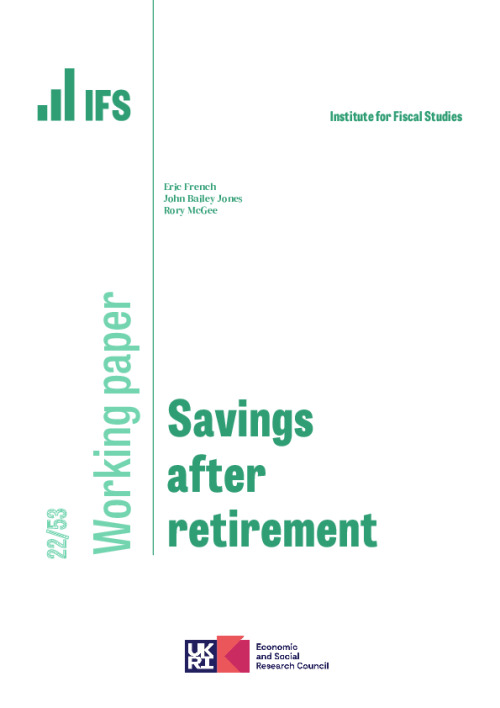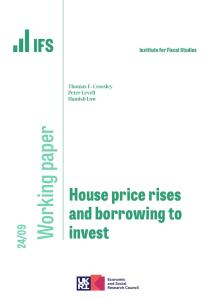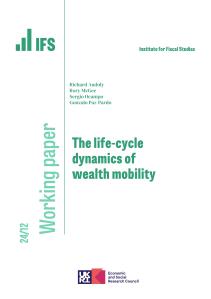Downloads

WP202253-Savings-after-retirement.pdf
PDF | 932.09 KB
Retired households, especially those with high lifetime income, decumulate their wealth very slowly, and many die leaving large estates. The three leading explanations for the ‘retirement savings puzzle' are the desire to insure against uncertain lifespans and medical expenses, the desire to leave bequests to one’s heirs, and the desire to remain in one’s own home. We discuss the empirical strategies used to differentiate these motivations, most of which go beyond wealth to exploit additional features of the data. The literature suggests that all the motivations are present, but has yet to reach a consensus about their relative importance.
Authors

CPP Co-Director
Eric is the Montague Burton Professor of Industrial Relations and Labour Economics at the University of Cambridge and Professor of Economics at UCL.

Research Associate University of Western Ontario
Rory is a Research Associate at the IFS and an Assistant Professor in the Department of Economics at the University of Western Ontario.

Vice President of Microeconomic Analysis Research Department at the Federal Reserve Bank of Richmond
Working Paper details
- DOI
- 10.1920/wp.ifs.2022.5322
- Publisher
- Institute for Fiscal Studies
Suggested citation
J, Bailey Jones and E, French and R, McGee. (2022). Savings after retirement. 22/53. London: Institute for Fiscal Studies. Available at: https://ifs.org.uk/publications/savings-after-retirement (accessed: 30 June 2024).
More from IFS
Understand this issue

The future of the state pension
21 December 2023

Raising revenue from closing inheritance tax loopholes
18 April 2024

Why inheritance tax should be reformed
18 January 2024
Policy analysis

Pensions: five key decisions for the next government
7 June 2024

Key decisions await the pensions minister after the election
7 June 2024

Making mortgage guarantees permanent will help some first-time buyers, but only if they can afford a bigger mortgage
6 June 2024
Academic research

House price rises and borrowing to invest
27 March 2024

The intergenerational elasticity of earnings: Exploring the mechanisms
3 June 2024

The life-cycle dynamics of wealth mobility
10 April 2024